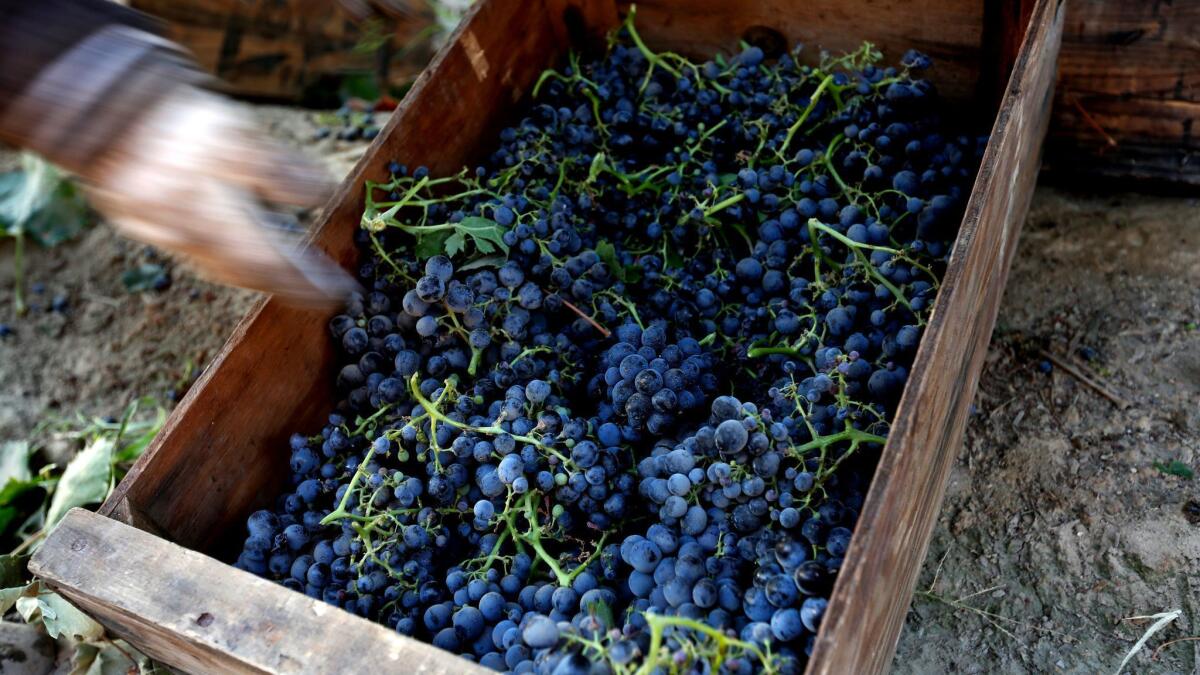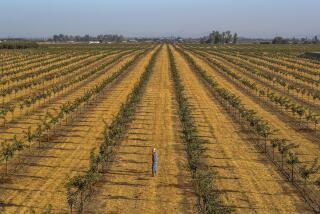How California grapes and the U.S.-China trade war are giving Chile a headache

President Trump’s trade war with China and a late-blooming bumper crop in the United States are combining to curb the amount of fresh table grapes imported from Chile when the weather turns cold.
That’s forcing the South American country to look to Asia to sell off its fruit. It’s the latest example of an unexpected market getting caught up in the U.S.-China spat.
California grapes generally get harvested into the fall. In December — as those supplies dissipate — the United States turns to Chile for fresh fruit.
This year, though, with plenty of leftover domestic inventory, there are signs that American demand for imports is set to decline. The result: Chile, the world’s biggest exporter of table grapes, fresh blueberries, plums and cherries, has to seek out alternative destinations. The United States is usually its biggest buyer.
“We’re dealing with the situation by looking for new markets, specifically Southeast Asia,” Ronald Bown, chairman of the Chile Fruit Exporters Assn., said in an interview in Santiago.
In California, the main source of grapes in the United States, there’s also a late harvest that has begun to compete with Southern Hemisphere farms.
As that fruit continues to make its way to grocery stores, and with the domestic glut off the back of the trade war, it “makes sense” that rival suppliers abroad are seeking other markets, Kathleen Nave, president of the California Table Grape Commission, said in an email.
Further complicating the trade picture: Many California fruit companies have operations in Chile. They include Watsonville-based Driscoll’s, the world’s largest grower of berries; Naturipe, based in Salinas; and King Fresh, based in Dinuba.
Meanwhile, Chile is also dealing with headaches in the nut trade.
India raised tariffs on walnut purchases to 100% from 30%, a response to Trump’s decision to target global shipments of steel and aluminum. India applied the retaliatory levy across the board, not just on U.S. walnuts. Chile is one of the world’s top three exporters.
Containers of Chilean walnuts sailing for India were rerouted in May as clients sought to circumvent the tariffs by shipping to other countries, said Nicolas Di Cosmo, president of industry association Chilenut.
“Crises normally create opportunities,” Di Cosmo said. “But the trade war is affecting the healthy flow of goods to such an extent that it’s nullifying any type of opportunity there could be.”
Times staff writer Geoffrey Mohan contributed to this report.
More to Read
Inside the business of entertainment
The Wide Shot brings you news, analysis and insights on everything from streaming wars to production — and what it all means for the future.
You may occasionally receive promotional content from the Los Angeles Times.










